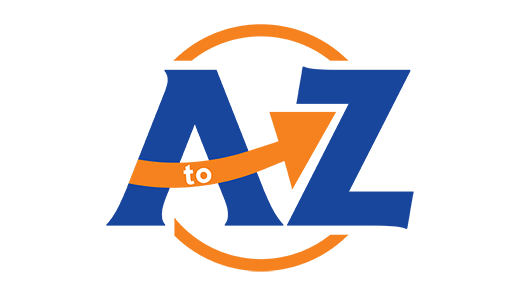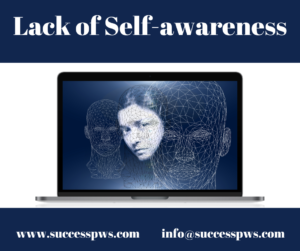25 Aug Becoming super self aware
You may be ultra self-aware. Or, you may be like my former self. You may be clueless about so many things everybody around you is aware of except YOU. How awkward can it get than being a stranger of one’s self 🙂
You may be skeptical. You may not think that you’re that blind concerning yourself. Most people think they’re above average when it comes to self-awareness. They always think that others need some awareness, not them. How do I know? I was there too 🙂
The litmus test to know whether you need a little bit of self-awareness dose is simple. Do you really know who you truly are more than others know about you? Can you enlist without thinking about more than 5 of your strengths and weaknesses?
You most probably said yes to the above first-round questions. Thus, let me push it further.
When was the last time you uncovered a blind spot? If it was some years or months ago, you think you’re self-aware but you’re not!
Another question: Do people around you feel free, do you give them permission to express themselves? Do people tell you that you’re easy to live, hang out, and work with?
If your answers aren’t resounding yes, keep reading. You may like what I have to share…
Even if you answered affirmatively and you are super self-aware, you may find what I’ll be talking about interesting, don’t drop out. Stay a little longer…
If your self-awareness is high, you may relate to one or more of these facts. The super self-aware explored and acquainted with their different identities. Only the unaware think they are their egos, and allow the latter to run them day in and day out mindlessly. The ultra self-aware don’t identify their true identities with the ego. They are masterful in leashing it, and even using ego to their advantage.
The super self-aware learn about their Bodies, Minds, Souls, and Spirits. They are very clear about who they truly are and very comfortable with their own skin including their limitations, vulnerabilities, and breaking points.
- The self-aware may know their strengths, but the super self-aware not only know but also leverage them.
- The self-aware may recognize their limitations while the ultra self-aware exploit them for good.
Of course, the exceptionally super self-aware not only are aware of themselves alone, but they also are aware of the people around them, their environment, other creations, and the cosmos (Of course, I’m not talking about knowing everything in the universe. It is impossible). They are super conscious concerning their higher and highest selves. They may spend a few minutes to a few hours every day transcending the physical universe and traversing the other invisible universes communing with the metaphysical and spiritual Beings outside of space and time.
If what I’m talking about in the above paragraph makes sense to you, you and I should talk about this in private and offline. I wish I talk more about this. But, I’m already concerned that some of my readers may think that I’m insane talking about this politically and religiously incorrect stuff so let me stop it here…
If in case you’re not super self-aware, you may put me on a pedestal and think as if I’m super self-aware and have been like this always. Well, I’m flattered. I don’t blame you because you may not know me…
Most probably, I was in a worse spot than where you’re now. Of course, until some years back when I felt stagnated and stuck in life. That dreadful feeling forced me to slow down and reflect to understand what was happening.
I was making some progress and felt good. But, it seemed I hit a glass ceiling. I got bored.
The slowing down gave me a golden opportunity. I recognized the culprit. I was barely self-aware (I will dive more into that soon). I had many self-limiting beliefs running in the background. They were running me sitting on the driver’s seat. What was more? I had some unproductive habits and behaviors that self-sabotaged me without my conscious awareness.
Back then, I didn’t even know how bad my lack of self-awareness was 🙂
To give you some hints: I didn’t even know I was relatively short until I read the experience of Jack Welsh, the former Chairman, and CEO of GE. Read the full story in the excerpt below.
I didn’t know how I was behaving badly when I was in college. A classmate recently told me that each time when I was walking into the classroom, it looked like I was looking for a fight. According to him, I used to push my chest out and look sternly at everyone while walking toward the back seat.
What was interesting, according to this friend, many of the classmates had fun with this behavior and waited for my next entrance to laugh about it.
Me? No clue about what I was doing and why. One thing I know for fact is that I was not a ‘fighter’ type. I still don’t look for a fight even if someone invites me to join, let alone look for a fight each time I walked into a room full of students many of whom were smarter than I was.
You got the point. I was super self-unaware!
If you never sat down and reflected to increase your self-awareness intentionally and constantly, this is the time to start small scale. If you never bothered to ask people around you for feedback asking them to learn more about you and how they perceive you, well, it is not too late. Start today.
Let me leave you with the excerpt below where I talked about one of the self-awareness moments that awakened me to a different world of self-enlightenment.
The excerpt is taken from my book “Soft Skills That Make or Break Your Success”, Soft Skill 1 (Increasing Self Awareness).
As you can see, the first and most important soft skill to succeed in any endeavor in life, the marketplace, and the workplace is self-awareness. It’s the foundation for getting along with others and leading successfully.
“…Rafael moved forward. “Tell me a little bit about the second lesson.” Dan cleared his throat. “We learned that it’s a daunting task to know everything about self. There are several dimensions of self. However, Joe encouraged us to focus on the four dimensions of self.” Dan was talking about the four dimensions of self discussed in Stephen Covey’s book ‘The 8th Habit’:
1. Body,
2. Mind,
3. Heart, and
4. Spirit.
For your information, Covey expanded on the needs of these four dimensions in his book ‘First Things First.’ He wrote, “The need to live is our physical need… The need to love is our social need… The need to learn is our mental need… The need to leave a legacy is our spiritual need to have a sense of meaning.”
Rafael nodded and inquired, “Among these four dimensions, which ones do you have a pretty reasonable awareness of?” Dan quickly answered. “I had a good grasp of my physical body and mind before joining the program. I firmly believe that I’ve met the needs of these two dimensions. Nonetheless, I need to work on the remaining two dimensions and their needs.”
Many people may not have full awareness of their physical body. Knowledge about the body seems obvious among the four dimensions, isn’t it? But it isn’t. Let me give you a good example. I was reading the autobiography of Jack Welch, the former chairman and CEO of General Electric, “Straight from the Gut” in 2007 or 2008. I was stunned when I read one of his blind spots. Welch wrote, “Decades later, when looking at early pictures of me on my sports teams, I was amazed to see that almost always I was the shortest and smallest kid in the picture.”22 For decades, Welch was ‘unaware’ of his short physical height and small size.
Welch revealed why he had a biased view of his physical dimension. His mother pumped him with confidence as he grew up. As a result, Welch didn’t have any clue about his real physical height and size when he was a kid, during his teenage years, and most of his adult life. He confessed, “Yet, I never knew it or felt it. Today, I look at those pictures and laugh at what a little shrimp I was. It’s just ridiculous that I wasn’t more conscious of my size”.
I’ve to admit that reading this part of Welch’s autobiography caused a light bulb to go on in my head. Before reading that passage, I never had a clear sense of my real physical dimension. In the past, whenever I looked at group pictures, my preoccupation was how I looked, who was next to me, and so on. I never compared my height or size with my peers. I hadn’t known that I was that ‘short.’
Reading Welch’s funny story led me to pay closer attention to my physical dimension. Since then, not only have I found myself aware, but I also began making fun of my height. End of March 2016, for instance, I spoke at a conference about bridging the leadership gaps, and we had a group photo afterward with the rest of the panelists. Guess what? I was the shortest!
I posted the pic on my Facebook timeline with this caption; “I need this kind of group picture to remind me how short I am.” Many of my Facebook friends loved the self-deprecating post. I even got so many encouraging words intended to lift my spirit. If there are chances that many of us might have been harboring some blind spots concerning our physical dimension, what about those dimensions that may not be easy to figure out? What are the prices we’ve been paying for sheltering these blind spots? What are your plans to uncover your blind spots?” “Soft Skills That Make or Break Your Success”, p. 80 -82.

